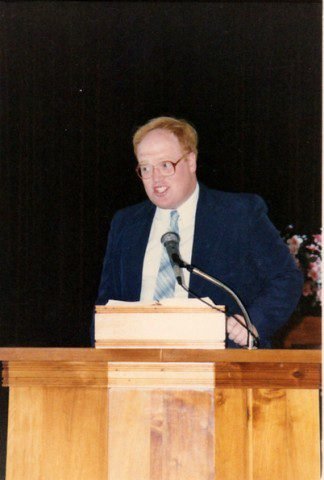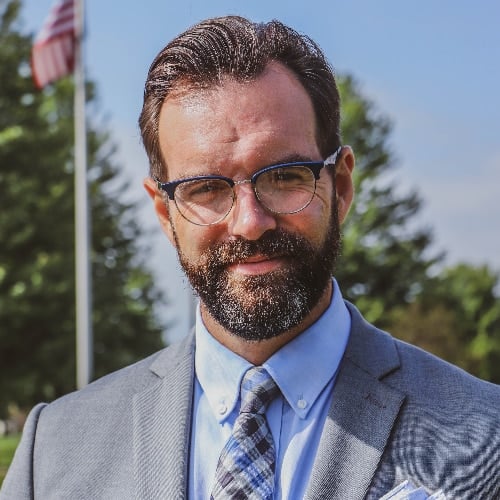
Recently, a Christian reader asked:
How can a person forgive their worst enemies without divine enablement? Is this something we can do on our own, without supernatural love? Because we humans, as good as many are, would still balk at loving a person who killed their child, or loved one, or caused immense personal injury. And yet, there are many who have done just that.
I assume this reader is talking about the Christian (or other Abrahamic) religion. According to Christianity, believers are indwelt by the third person of the Trinity, the Holy Spirit. God lives inside of every believer, 24 hours a day, seven days a week. He is their teacher and guide. The Bible says that the Holy Spirit teaches Christians EVERYTHING about life and godliness. Yet, we see no difference between how Christians and the unwashed, uncircumcised Philistines of the world live their lives.
This reader thinks that “forgiving their worst enemies” requires some sort of divine enablement; that, by implication, non-Christians, lacking divine enablement, are unable to do. Yet, countless Christians refuse to forgive others, and innumerable non-Christians selflessly forgive those who transgress against them. Forgiveness is a human thing; a learned character trait. Forgiveness is modeled (or not) to children by parents, grandparents, siblings, and other people close to them. A child who grows up in an unforgiving home will likely grow up to be an unforgiving adult. One can undo negative nurture in their lives, but it ain’t easy. Sometimes, it requires therapy to overcome negative character traits deeply embedded in a child’s psyche. Yes, parents, you can fuck up your kids. One need only look at President Donald Trump to see what bad parenting does to a person.
The reader’s comment reveals a false notion that is drilled into the heads of Christian children: you are required to forgive anyone who does you wrong. This idea is reinforced week after week through sermons and Sunday school lessons. Believers are taught to forgive everyone, just like God does. However, a cursory reading of the Bible clearly shows that God does not forgive everyone. He never has. Not in the Old Testament, and not in the New. Sure, we see God, at times, forgiving people, but we also see God not doing so many, many times
As an atheist, I reject the notion that I must always forgive anyone who offends me or causes me harm. I also reject the notion that we must love everyone unconditionally. (Please see Does God Love Us Unconditionally?) Is loving and forgiving others a good idea? Sure, but as with all “ideas,” there are nuances and exceptions that must be considered. Christians, however, must always, without exception, love and forgive. I contend that there are people who are not worthy of my love and forgiveness. My grandparents — who were fine, upstanding Christians who believed every word of the Bible — come to mind. (Dear Ann and Life with My Fundamentalist Baptist Grandparents, John and Ann Tieken.) Not only did I not love them, but when they died, I said, “Good riddance.” I said the same thing about my Christian uncle when he died; you know, the one who raped my mother. My grandparents caused untold harm to me and my mother. It was infuriating to hear people talk about how wonderful John and Ann were — awesome, Spirit-filled followers of Jesus — while knowing they were anything but. They had countless opportunities to practice Christianity in a meaningful way with our family, but they chose not to. And when they did deign to walk in Jesus’s steps, there were always strings attached to everything they did for you. Cross them, and as swift as getting your head cut off with a guillotine, they would cut off whatever help they were giving you. Critical and mean-spirited, they demanded, via Bible verse quotations, that people not treat them in kind. Simply put, they were fucking hypocrites.
All forgiveness and love are conditional. Christian or not, some lines can be crossed that are beyond love and forgiveness. And if you say otherwise, I don’t believe you. Stop with the syrupy claims that you love and forgive everyone. Can you not think of any circumstance where you wouldn’t love or forgive someone? I generally love and forgive others, but I can think of circumstances that are beyond my love and forgiveness. I refuse to pretend and love and forgive people, as I was commanded to do as a follower of Jesus; though even Jesus didn’t love and forgive everyone either.
Bruce Gerencser, 68, lives in rural Northwest Ohio with his wife of 47 years. He and his wife have six grown children and sixteen grandchildren. Bruce pastored Evangelical churches for twenty-five years in Ohio, Texas, and Michigan. Bruce left the ministry in 2005, and in 2008 he left Christianity. Bruce is now a humanist and an atheist.
Your comments are welcome and appreciated. All first-time comments are moderated. Please read the commenting rules before commenting.
You can email Bruce via the Contact Form.









